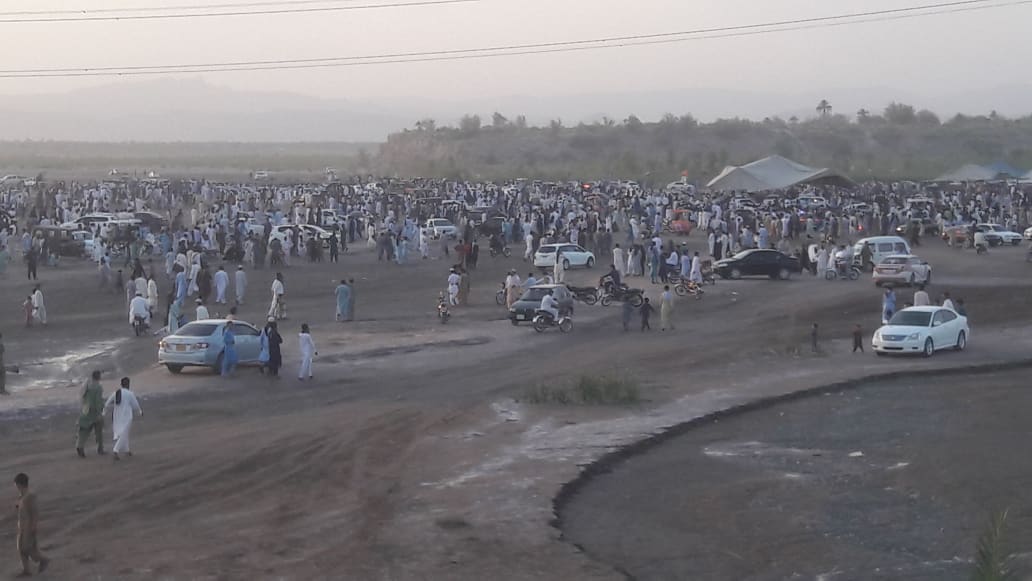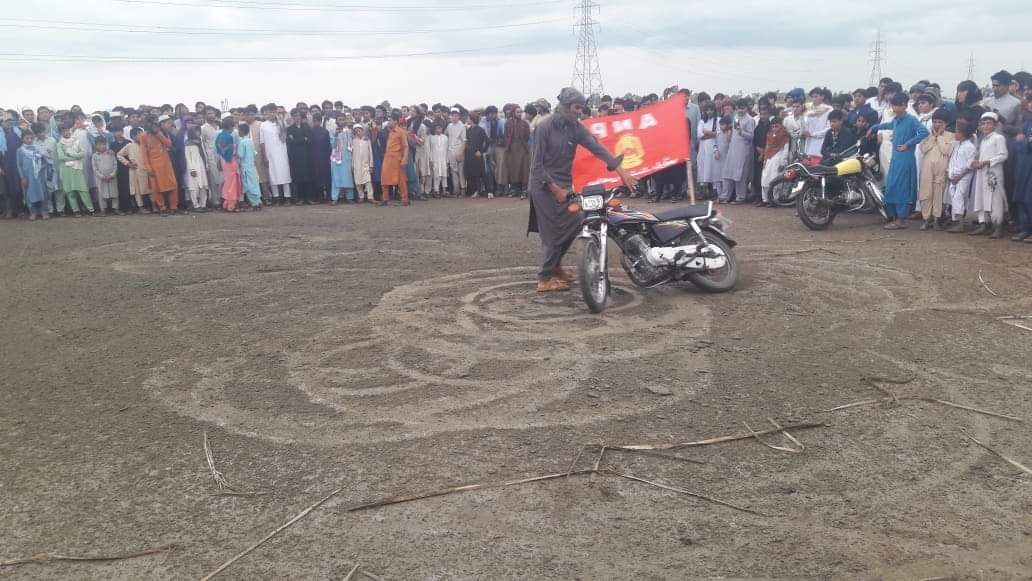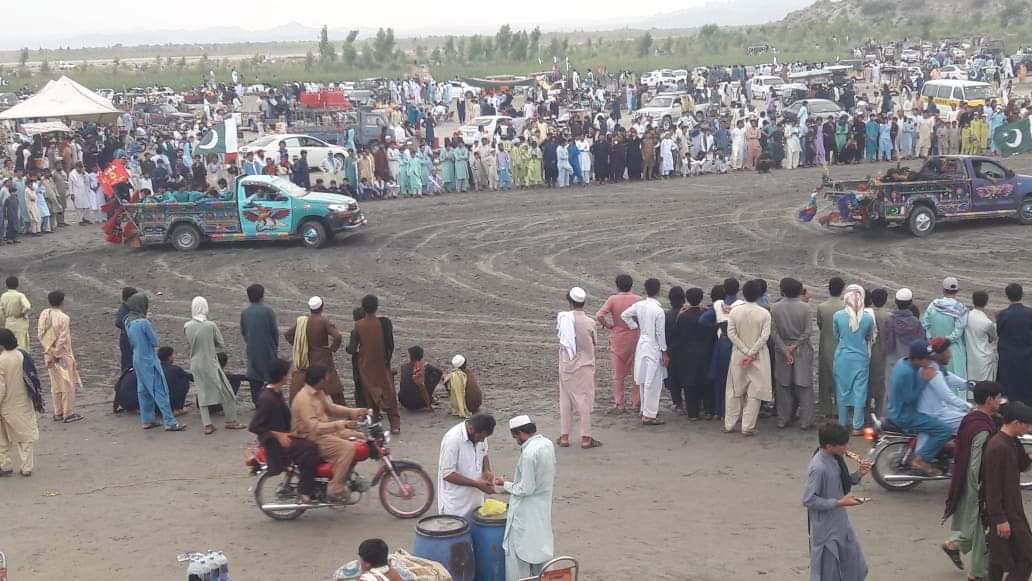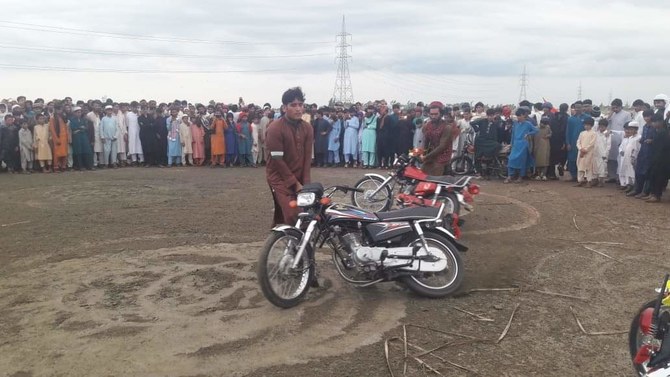DOMAIL, Pakistan: On Monday evening, Rafi Wazir arrived in Koshi Bridge Desert with around 15,000 other Pakistanis for an annual motorbike and car racing event that has become the crown jewel of Eid-al-Adha celebrations in Domail, a town on the edge of Pakistan’s northwestern North Waziristan tribal district.
Eid-al-Adha, the second of Islam’s two major religious festivals, also called the “festival of sacrifice,” is celebrated each year on the 10th day of the 12th and last month of the lunar Islamic calendar.

Car and bike riders and spectators seen in Domail, a town on the edge of North Waziristan tribal district on August 13, 2019. The racing event has become the yearly crown jewel of Eid Al-Adha celebrations in the Koshi Bridge Desert. (AN Photo)
The Pakistan government has called for the festival to be observed in a “simple manner” this year, to express solidarity with Kashmiris living on the Indian side of the divided region.
But in Koshi Bridge Desert, which boasts one of the area’s largest sand dunes, celebrations commenced as they do each year — with firework displays, barbecue feasts and over 50 local and out-of-town riders trying out a five-mile-long circular track, going over and around the dunes and showing off their adrenaline-fueled bravado.
“Racers and bikers compete with their most powerful four-wheelers and bikes on the dunes and sand,” Wazir, 43, said, as a line of motorcyclists whizzed past him, leaving behind a cloud of smoke and cheering spectators. “An interesting aspect of the celebrations is that there is no winner or loser.”

A biker manoeuvres sand dunes in Domail, a town on the edge of North Waziristan tribal district on August 13, 2019 at a racing event that has become the yearly crown jewel of Eid Al-Adha celebrations in the Koshi Bridge Desert. (AN Photo)
North Waziristan and its adjacent regions along the porous border with Afghanistan have long been racked by militancy, serving as safe havens for insurgents and becoming the epicenter of military operations to drive them out.
But even in the heyday of a decades-old Taliban insurgency, Wazir said, the races had gone on as usual. The Taliban, as opposed to most forms of entertainment and sport, did not interfere in the event, which Wazir said he had been attending since he was a school-going boy.
Wazir said his brother Attaullah, who works in Dammam, a main town in the United Arab Emirates (UAE), had arrived home three days before Eid especially to attend the races. Attaullah is among thousands of people from the area who have left to seek employment in Gulf countries, primarily in the UAE, Saudi Arabia, and Kuwait.
“My brother [Attaullah Wazir] has come on a two-week holiday only to attend the race,” Wazir said.

Vehicles move to the track to take part in a car and bike race in Domail, a town on the edge of North Waziristan tribal district, on August 13, 2019. The event has become the yearly crown jewel of Eid Al-Adha celebrations in the Koshi Bridge Desert. (AN Photo)
Jamal Shah, a bike racer, said the villagers had been waiting for weeks to watch the race.
On Monday evening, as the sunset, fireworks erupted in the background and participants and visitors alike rested in their tents, ate barbecued lamb, listening to traditional songs played by local musicians and prepared their vehicles for Tuesday’s adventure.
“Eid does not even hold as much importance for our youngsters as this car and bike race does,” Shah said, smiling. “Every Eid, this event brings economic opportunities for locals as roadside stalls turn the desert into a brimming market.”




















